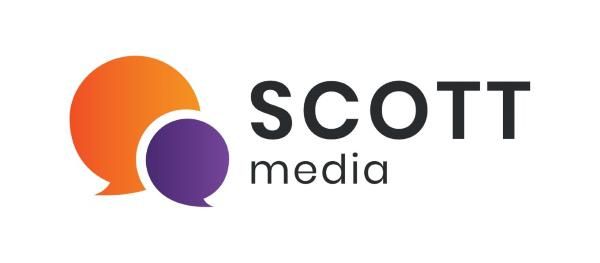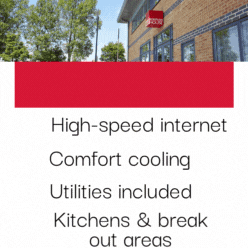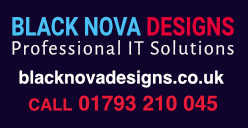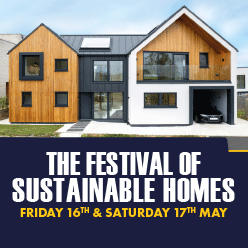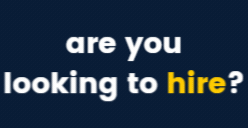Fiona Scott of Scott Media shares her tips for starting a podcast
It’s April and Spring is finally here. This month we’re asking business owners to share tips for their industry.
Today, Fiona Scott, of Scott Media, is sharing her tips on starting a podcast. Scott Media offers media training, PR strategy and retained services, animation, and videography from high quality YouTube filming through to full broadcast quality. Fiona is a journalist with more than 34 years’ experience and has been running her own company for almost 15 years.
Podcasts are another name for your own radio show. They are a fantastic PR tool as they showcase your expertise and that of your guests. They play into our natural and insatiable desire to consume stories.
There are many thousands of podcasts available today and this wealth of entertainment and knowledge can be off-putting. What’s the point when there are many other podcasts out there? There are two things to take understand though:
- Success isn’t guaranteed and requires effort – audiences don’t just ‘turn up’.
- There’s no reason why your podcast should not count. You are as entitled to be a podcaster/presenter as anyone else.
To have any chance of working though there has to be a plan and a purpose – or it simply won’t even get off the ground. Even celebrities will have a team around them to ensure a degree of consistency.
Therefore if you want to have your own podcast — or personal radio programme — it will require investment of time and money. Nothing is free.
Here are my tips to get your own podcast off the ground.
- Put the purpose first. Ask why am I doing this? Why am I starting on this journey?
For me, it helps promote my business and my expertise. It provides me with a free resource my connections can access and it is also fun to do. Fun is important for me. It will also lead to opportunities I cannot possibly predict — other than the fact that they will come along at some point. Also decide what’s your podcast going to be about? That vision has to be clear and it has to apply to a wide range of people. For me it’s the BS in business and the world of PR. All of my guests can talk about BS in their own particular fields – not one has said ‘I can’t talk about that’. Don’t get too hung up on having a narrow ‘niche’ just think of a subject matter which showcases your expertise yet allows you to have a deep pool of possible guests. Literally you could do a podcast on ‘how I start my working day’ or ‘my favourite places to visit’.
- Then come up with the plan - I first started on this particular journey in the middle of 2021. My plan allowed me to nail the process so that I was in this for the long game, as this never works if you are ‘messing about’ or you love it for five minutes, then you leave it and focus elsewhere. Weigh up two things — cost v. time. I am very busy in my little business as I’m its only employee so time is a major factor for me. With that in mind, I knew I needed budget to allow me to do it. I would be spending more than someone who was going to buy kit and do it all themselves. This is perfectly possible however it’s far more time-consuming.
- Research - If you are not sure where to start then get some training or at least sit with someone who has a podcast to see how they do it. This at least will give you a realistic starting point and will inform you around kit, editing software and other factors you can’t predict yet. This will probably require you spending some money. Yet it will be money well spent rather than trying to DIY and finding it doesn't work.
- Schedule your recordings - I knew I needed to record several podcasts in a day to give me ‘content in the can’ and to have some ‘spare’ interviews in case one failed for some reason – and this WILL happen. I identified that it was cheaper and easier to hire a radio studio at my local community radio station for a day, learn to use the simple kit, record my podcasts and then pay a little extra for them to edit it. I now hire the studio for four days a year.
- Be flexible – some recordings won’t work because of tech failures, some guests won’t turn up or they will be poor and it’s not a good listen. So always have some back-up ideas ready to go. It’s helpful if this back up is simply you…it means you can come up with something useful and use your knowledge in a podcast episode in case something goes wrong. This also means you don’t have to scrabble around to find a last minute guest. Though if you are using a community radio station, there are almost always interesting folk in the building who will step in at the last minute.
- What about branding? – again this goes back to purpose. How do you want your podcast to be positioned? Is it in line with your business? Is it to do with a charity? Or is it aligned to a hobby? . For me I went for flexing my brand using a cartoon avatar created by cartoonist and artist Morgan Gleave. The aim was to make it aligned to my business yet with a different flavour which suggested fun and ‘free’. Good branding requires a budget though you can DIY if it’s not as ‘business’ orientated as my podcast. It still needs to have a recognisable personality.
- Consider music – if you are launching a podcast, you cannot just use your favourite artist’s song. Podcasts are designed to be heard and to be ‘out there’ and there are laws around copyright. Don’t fall into the trap of thinking it’s okay to use your favourite song of today. There are various resources where you can choose some generic music which you can download having paid a small licence fee. However that music is not special to you. My purpose was to play the long game, I decided to commission my own music which belonged to me, was original to me and the composer — and that I wouldn’t hear anywhere else. Hence I invested in the time of singer song writer Helena Softley Eden. Another investment in making it all mine.
- Consider your podcast regularity – how many podcasts do you want to record and how often are you planning on publishing them? Is it one a month? One a day? One a week? You have to really look at your time and your long term goal to decide on this one. The less you do, the more time it takes to build an audience. The more you do, the more time it takes in the short term. Consistency is key, your audience will get to know your publication schedule and will subliminally expect you to stick to it. I went for a halfway position of two new podcasts per month — that’s 24 across a year. That gives me something new to promote every single month — twice.
- Paying your guests? – never ever forget you are asking someone to ‘donate’ their time and possibly their expertise to you and that needs to be respected. So are you going to pay your guests? This is a matter for you. I’ve found that some ask for payment and some do not and I will consider such requests as I go — though largely I do NOT pay a guest without a very good reason. Also what do you want them to do about their interview with you? As a minimum they should be talking about it on their social media – and if you are paying then this should be part of the ‘deal’.
- The Launch – what is that going to look like and do I want to make a ‘moment’ of it? Again this comes back to purpose. If it’s about a hobby and you have a very limited budget you might want to just start and shout about it on your social media. I planned a bit more of a fanfare and sent out a press release about it starting. I recorded my first podcast day in mid 2021 ready for launch in the December that year. I wanted to kickstart my podcast with the 12 Days of Christmas — 12 podcasts across the first 12 days of December and then into the rhythm of two per month.
- Where do you host a podcast? – again consider purpose. You might want to just put it on your website. I wanted my podcast to populate the main sites and this will cost money — on average about £10 a month, however the more podcasts and the longer they are the more it will cost. I use Buzzsprout for this purpose and have found it easy to use.
- PR the hell out of your podcast. Assume always that no one knows about it and talk about your podcasat often. Talk about it starting, talk about milestones. Talk about every single guest. Blog about your favourite podcasts. Remind people often on social media about your podcasts. When you are fed up of promoting it in this way – do it all again. You will find there’s a direct relationship between downloads, listens and you talking about your podcasts. It’s called good PR.
To date, at time of writing, here are a few stats so far on my modest podcast — PR Not BS with Fiona Scott:
My podcast has had 2,202 downloads at present with the top podcast having 144 downloads and it was one which featured me — No BS PR Predictions for 2022. In second place with 97 downloads is PR Brilliance with national journalist Jill Foster.
29 per cent of my audience download via Apple, 20 per cent via Buzzsprout itself and 13 per cent via Spotify. My audience is split 92 per cent in Europe, four per cent from North America and one per cent from Africa. There have been odd downloads elsewhere.
The unexpected outcomes in these early days have included:
- Two pieces of national publicity showcasing me as a new podcaster.
- Several pieces of local publicity doing the same thing.
- A piece of consultancy work to guide someone into setting up their own podcast.
- Two quotations from me to potential clients who want me to run their podcast for them.
- Given me a ‘reason’ to continue a conversation with interesting people I meet along the way. A great ice-breaker for anyone is to say 'would you fancy being a guest on my podcast?'. Very few people say 'no'.
If you’d like to listen to any of my podcasts you can listen here — https://scottmedia.uk/podcasts/










